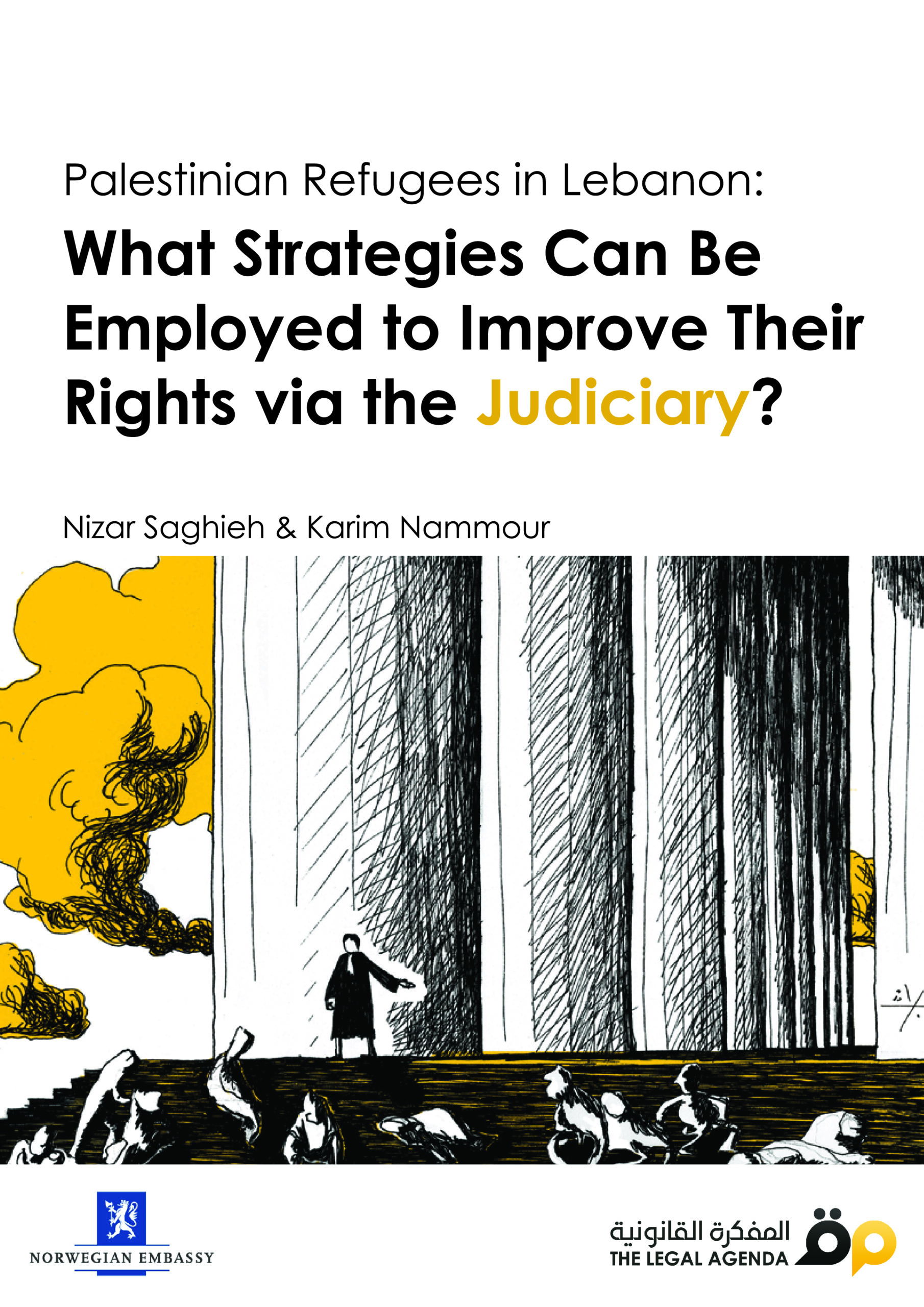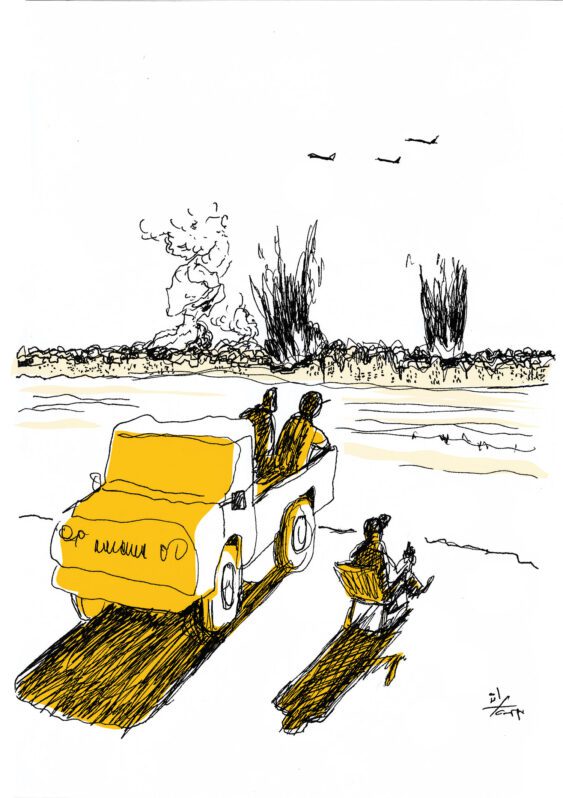Palestinian Refugees in Lebanon: What Strategies Can Be Employed to Improve Their Rights via the Judiciary?

Anyone monitoring the status of Palestinian refugees in Lebanon quickly perceives that political considerations usually eclipse the rights-based considerations involved, regardless of how fundamental the latter are. This trend is based, in particular, on fear of integration and naturalization of Palestinian refugees in Lebanon. Such integration could topple the demographic balance between the sects and, by doing so, disrupt the norms of power sharing between the sects’ dignitaries or leaders. Because of these fears, the discourse on Palestinian rights has profound symbolic dimensions: the denial of these rights in some respects constitutes and in other respects is portrayed as one of the exigencies – and defenses – of the current political regime and a reassuring factor for people belonging to sects that stand to lose political weight if naturalization occurs. On the other hand, the recognition of these rights – or the possibility of their recognition – is a scarecrow that kindles hostility among such people. Given the state of affairs, it is predictable that the link between the anti-Palestinian rights discourse and sectarian (i.e. partisan) fears and concerns gives rise to irrational interpretations of the non-naturalization principle that cast the recognition of any right, regardless of how insignificant it may be, as a violation of this principle. It is also probable that no matter how strong the arguments supporting the rights-based discourse are – particularly the strength of Palestinian refugees’ ties to Lebanon, where they were born and have lived for generations – they lose all potency in the political arena because they clash with the system of power sharing, which has proved to be most robust in Lebanon.
To demonstrate the prevalence of political considerations over rights-based considerations, we must refer to several manifestations of these fears. One of the most prominent examples is the scarecrow of Palestinian ownership of real estate in Lebanon. It is feared that such ownership would strengthen the refugees’ ties to Lebanon. To mitigate this fear, the legislature eventually passed a law banning persons who are not citizens of a recognized country from taking ownership by any means, thus opening the door to discrimination against Palestinian refugees and, more generally, against stateless persons – i.e. the groups that are in the most dire need of solidarity and therefore affirmative discrimination. Sadly, this prohibition subsequently morphed into a typical clause that is incorporated into many proposals to recognize civil, social, and economic rights, in order to prevent the naturalization scarecrow from impeding the proposals.. The strongest evidence of the power of this scarecrow is that former minister of interior Ziyad Baroud – known for his pro-human rights discourse – incorporated such an exception in one of the two versions of a bill to recognize the right of Lebanese women to pass their nationality on to their children. This version stipulated that the right applies to all persons born to a Lebanese mother except for persons born to a father who is not a citizen of a recognized state.
Developments in Lebanese law show that naturalization and its negative effects on the balance in the quota-based power-sharing between the representatives of the various sects is a far more sensitive issue than the religious legislations that these sects produce in the area of personal status issues. For example, as a result of community activism, some progress on the issue of custody has been made in the jurisprudence of juvenile justice judges even though this issue clashes with earlier religious stances. Conversely, the issue of a mother’s right to transfer her nationality to her children remains stagnant.[1] The issue of the right of adults younger than 21 to vote also remains stagnant because of fear about the number of Muslim voters exceeding the number of Christian voters.[2]
The regime’s sensitivity to and denial of such rights will likely increase with the deterioration of the Syrian refugee phenomenon and the concerns it evokes. Hence, means of overcoming the strong political obstacles facing the Palestinian refugee rights discourse must be found.
One of the most apparent of these means is to search for a new arena for dialogue, an arena that allows the discussion to be shifted from the logic of scaremongering to the logic of rights. In other words, we must find an arena that allows for the discussion to be rationalized and freed from the pitfalls of partisan instincts and fears. The best arena for this purpose may be the judiciary because of the considerations that govern discussions before it, the method through which it issues decisions, and its duty to justify these decisions legally. Additionally, the recognized right of every natural and legal person to litigate ensures that anyone concerned can access it. The judiciary is, from a number of perspectives, preferable to other arenas that could be used or have been established for the purpose of addressing Palestinian rights issues, the most important of which is the Lebanese Palestinian Dialogue Committee.[3] This committee remains, in its composition, initiatives, agenda, and work method, governed by political considerations – suffice it to say that the committee’s president is appointed by and works under the supervision of the Lebanese prime minister.
To explore the prospects of resorting to the judicial realm – the most suitable for achieving the aforementioned goal – we must first briefly review the development of the Palestinian refugees’ legal status in Lebanon. The second part of this report will then discuss the factors both obstructing and aiding strategic litigation for this purpose. The third part will survey the judicial routes that are the most likely to produce a breakthrough in this issue. Of course, our approach at this level is not limited to examining the chances of achieving legal victories. Rather, it also includes exploring the prospect of public engagement with the cases, as well as the potential positive effects of the cases on the legal authority examining them.
To read the study in English click here
To read the study in Arabic click here
Mapped through:
Asylum, Migration and Human Trafficking, Lebanon, Studies & Papers
Related Articles




